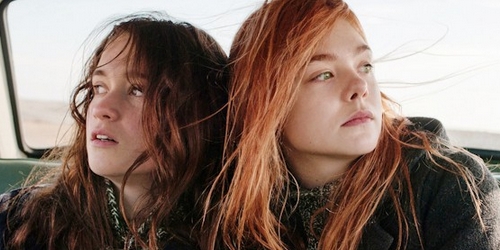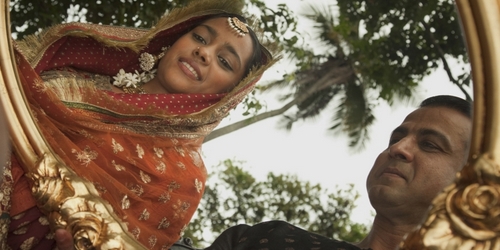 Sally Potter’s incredible film explores aspects of female friendship from the perspective of 17-year-olds Ginger (Elle Fanning) and Rosa (Alice Englert, daughter of director Jane Campion), as they attempt to navigate their way through adolescence during Cold War, 1960’s Europe.
Sally Potter’s incredible film explores aspects of female friendship from the perspective of 17-year-olds Ginger (Elle Fanning) and Rosa (Alice Englert, daughter of director Jane Campion), as they attempt to navigate their way through adolescence during Cold War, 1960’s Europe.
Ginger and Rosa epitomize the rebel, Beatnik culture of the 60’s; they even dress the part, and their determination not to become their mother’s, both aging housewives who have been left by the men who once loved them, is a nod to the changing times, as well as one of the many aspirations that serve to bond the two girls. At first this bond appears as though it may never be broken, but while Ginger’s focus becomes trying to save the whole world on her own, Rosa clings to God and religion as a means of coping with the potential nuclear doom, and makes finding true love her mission in life. It is these differences that eventually lead to a rift in the girls’ relationship.
While the girls try to make sense of their personal lives and cope with internal battles, there are also constant reminders, via BBC radio alerts and overheard conversations, of the violence of war and the fragility of human life on a larger scale. Potter’s juxtaposition of these internal struggles alongside the possibility of impending world abomination is outstanding in it’s precision, making this not only a film about the trials and tribulations of growing up, but something so much more. Within this narrative are themes of love, death, religion, politics and the meaning of life, all of which are seen through the eyes of the brilliantly talented Elle Fanning (who was only thirteen when the film was shot) as Ginger.
Alessandro Nivola also delivers a note-worthy performance as Ginger’s father, Roland, who plays opposite Christina Hendricks (Mad Men) as Ginger’s mother, Natalie. Roland’s pacifist, autonomous outlook on life has the audience simultaneously agreeing with and passionately despising him throughout the course of the film. He encourages Ginger to be herself; to live her life the way she sees fit, as opposed to the way society expects her to, and there is something kind of magical about a guardian figure that encourages such freedom of thought and expression in a child.
However, Potter soon reveals that this freethinking lifestyle does not come without negative consequences. Despite our best efforts to the contrary, our actions are never completely our own, as we cannot help but touch the lives of the people around us in one way or another, and Roland’s complete disregard for the way his beliefs affect the people who love him ultimately proves devastating. Yet there is hope in the film; hope in Ginger’s poetry, in the music, which serves as a solace to several of the characters throughout the course of the film, and hope in the series of brief moments that we call life.



